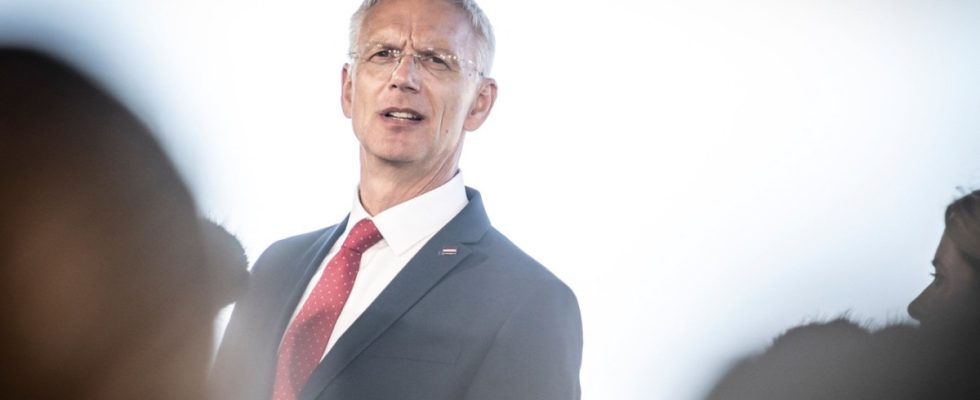Latvian Prime Minister Krišjānis Kariņš has announced his resignation as part of a planned government reshuffle. On Wednesday his party will select a new candidate for the post of head of government, he announced. This candidate would have to be commissioned by President Edgars Rinkēvičs to form a government and, if successful, approved by Parliament. The next parliamentary elections in Latvia are scheduled for 2026.
Kariņš plans to submit his resignation to the President on Thursday. So far he has led a three-way alliance of his New Unit with the national-conservative National Alliance and the centrist-conservative electoral alliance United List. Kariņš accuses his partners of blocking government work for “more prosperity and economic growth,” as he writes on media platform X (formerly Twitter).
Because of these disagreements within the coalition, the 58-year-old announced on Friday that he would form a new government involving two opposition parties – without resigning for the time being. This led to discussions, as according to the Latvian constitution, the head of government is nominated by the President of the Republic.
“We must find a way to put petty disagreements aside and create a broader, stronger and more dynamic government,” Kariņš said on Monday. According to the constitution, the resignation of the head of government in Latvia automatically leads to the resignation of the entire Council of Ministers. Until a new government is confirmed, the old one will remain in office.
The head of government, who has been in office since 2019, has been pushing for some time to expand the previous coalition to include the “Alliance of Greens and Farmers” and the left-wing progressives. By doing so, Kariņš said he wanted to make government work smoother and more effective. But his coalition partners rejected this.
Kariņš’s party won the parliamentary elections in the Baltic Sea state bordering Russia just last fall. The new centre-right government took office in December. The three-party coalition holds only a narrow majority in the Saeima with 54 out of 100 seats. The election of the new president also caused uproar in the Latvian governing coalition in May.

